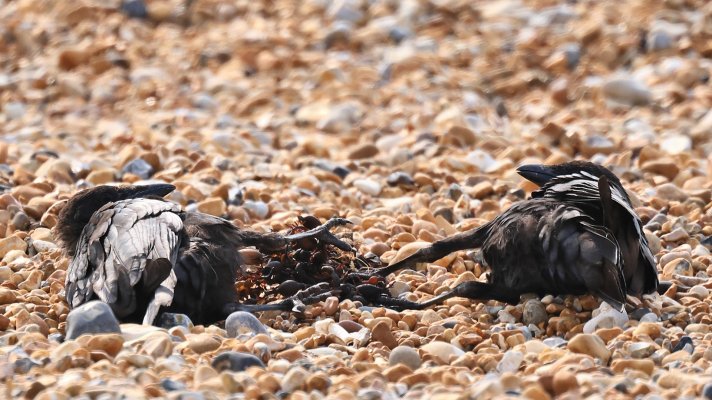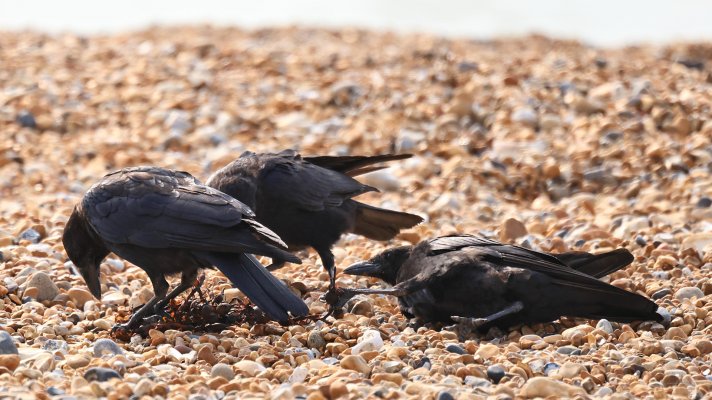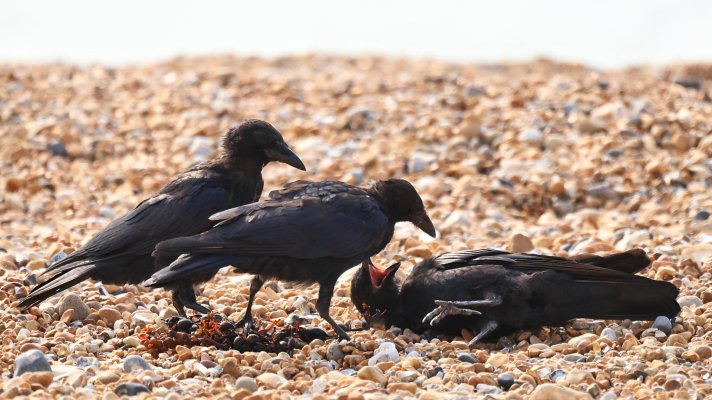I believe that during nesting seasons, smaller bird's of prey, such as peregrine falcons, tend to remove heads (and wings and legs) to make the kill a lighter weight for carrying back to the nest.
In the first incident it might be that the noise heard was corvids mobbing a bird of prey (which is pretty common) and forcing it to abandon it's partly dismembered kill in the process - and it could be something along those lines in the second.
I have a feeling that crows and magpies tend to pick the bits they want at the kill site, rather than carry the whole back to a nest - and they often seem to be solely interested in eyes and innards, leaving much of the corpse uneaten and in one (albeit unzipped) piece.
Larger and more lethal seeming birds are often chased off by smaller ones because the former know that mobbing behaviour is cumulative - so what starts as one easily dealt with individual bird can become an awful lot more, and in a very short period of time. That rapid escalation in potential threat is helped by the fact that mobbing behaviour often attracts birds of many different species. I suspect one of the reasons that the bigger birds do a runner is because - although more than a match one on one - it's simply not worth hanging around for the odds to change against them.




